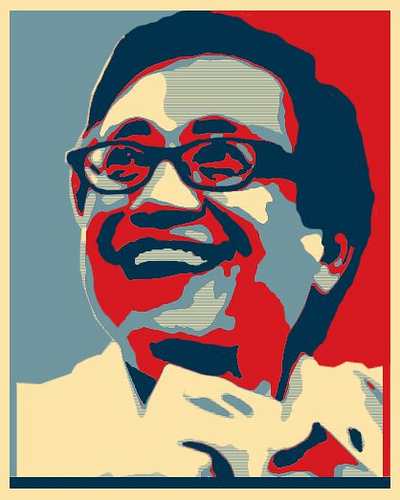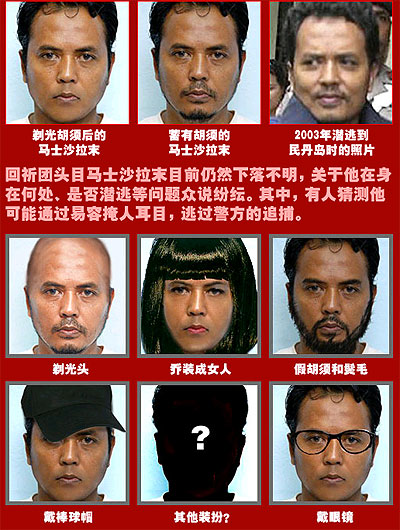Chen Show Mao is a breath of fresh air in parliament. As MPs from the ruling party took the opportunity to cast cheap pot shots at opposition MPs or sing praises of their own party’s achievements, here is someone who thinks of Singapore and Singaporeans first before party interests.
I particularly like this quote which he used to frame his maiden parliamentary speech: “… differences are not divisions. It is the intolerance of differences that will be divisive”.
Short and sweet.
Why can’t all the MPs work as one to make Singapore a better place for all Singaporeans after being elected into parliament?
Show Mao reminds me of US President, Barack Obama, with the same quiet charisma, but steely grit and inspiring speeches.
Here’s his full speech via the Workers’ Party website:
Mr Speaker, Thank you, and congratulations.
Following our two elections this year, some commentators tell us that Singaporeans’ political differences are rising to the surface. Many of our leaders have expressed their concerns about the differences. They warned of divisions and called for unity. I’d like to remind us that differences are not divisions. It is the intolerance of differences that will be divisive.
I would like to quote a man who is not able to join us here today. In a newspaper interview, former Minister for Foreign Affairs George Yeo related what a Roman Catholic cardinal told him about the late Pope John Paul the Second. The cardinal had drafted, “Even though we’re all different because we speak different languages, we are one”. The Pope corrected him. “No, it is not even though we’re different, we are one. It is because we are different, we are one.” Mr Yeo then said, “I thought that was so profound and beautiful. In my first speech to the United Nations, I repeated that story because in the UN, it is also because we are different that we are one. To be a human being is to be different. The whole logic and driving force of biological life is diversification. An imposed unity is a false unity; it’s a contradiction in terms. To me, that is a core position, and Singapore is an expression of that core position.”
Singapore is an expression of that core position of diversity, and this must include political diversity in this day and age. Let me state quite clearly how I see myself as an opposition member of this parliament. I may challenge government policy in parliament, but I do not by definition oppose government policy. It does not mean that I do not support the government in its work. It is very simple. I am an opposition MP and will perform my role to voice alternative and opposing views in the law-making process, based on my party philosophy. But I submit to laws properly made because I believe they express the sovereign will of our people. You see, I do not believe that Parliament is just form, and no substance. I have been elected to serve in this Parliament and will do what I can to help make it work for Singapore, make it a First World Parliament after our own fashion. As an opposition MP, I am not the enemy of the government, I am a Singaporean and a patriot.
I believe that our community will come out of robust debates stronger. Not just in Parliament but in larger society as well. Social cohesion will be strengthened when we give people, including our young people, room to voice their views and grievances and participate in community affairs. This is being recognized in households and at work places around us and is affecting how they are run. There is no reason not to learn from it. But we must start from a position of difference, not a forced unity.
How do we move forward from a position of difference?
A wise Singaporean wrote to me recently on Facebook, “the key is always to set our ‘devilish’ pride aside and for both parties to communicate.” He did not mean political parties, but any two parties in a position of difference. He goes on, “The aim is not to impose one’s view over the other but to find as much common ground as possible for the good of the common objective both parties have… And yes, I have always practised this in the office and with the wife…so far so good.”
How do we expand the areas of common ground to accommodate political differences? I believe it will be best done through strengthening institutions that are non-partisan and capable of commanding the respect and allegiance of all Singaporeans in spite of their political differences. The office of the Presidency, for example. President Tan clearly intends this. In his swearing in ceremony he said, “I will strive to strengthen our common bonds and our core values that underpin our society. …Whatever your political views,… I will strive to the best of my abilities to represent you.”
The government in the addenda to the President’s address said, “The building of friendship, understanding and trust amidst increasing diversity will be supported through organisations such as the People’s Association and grassroots platforms such as the Inter-racial and Religious Confidence Circles.” We welcome this.
Let us Singaporeans take our cue from the President. Look for what Singaporeans’ different visions have in common and take our next steps in these areas of common ground. Let us ask ourselves “is there more we could do?” I believe that it would always be possible to find common ground among Singaporeans, even if it might now take greater efforts on the part of those of us here in this House. But it is possible – they call politics “the art of the possible”.
HUMAN CAPITAL
Mr Speaker
In the addenda to the President’s address, the government announced its plans to, “significantly enhance the transport infrastructure, quality and opportunities in education, healthcare and housing”. We endorse the goal. And we will hold the government to it.
We believe that Singaporeans in recent years have been underserved by enhancements in these areas. We believe that most of these enhancements are best thought of, not just as increased expenditure, but as investments in the human capital of our country, with long term benefits to our society, such as the productivity increase that the government calls our “fundamental economic challenge”. Adam Smith wrote many years ago about investments in a person, such as by the acquisition of new talents, he wrote, “such acquisition of talents always costs a real expense, which is a capital realized in his person. [but] Those talents, as they make a part of his fortune, so do they likewise that of the society to which he belongs.”
Many economists have long regarded expenditures on education and healthcare as investments in human capital. They produce income and other useful outputs for the individual over long periods of time. They also produce external benefits for the rest of society. When growing disparity in wealth suggest that more and more households may not be able to make the investments that may be needed to give their children a place at the same starting line as their cohorts, it is even more appropriate for the government to increase public investments in the human capital of our young people.
This is one of the goals the government set in the addenda to the President’s address: “Through our investment in Education, we ensure that every child, regardless of family circumstances and background, has access to opportunities.” That access to opportunities has to be meaningful and available to everyone.
Similarly, for many expenditures we make outside the areas of education and healthcare, If we just take an expanded view of the returns from these investments, we will be able to see their long-term benefits.
Take elder care for example. Our investments in this area do not just benefit our elders alone. They enhance the productivity of working family members who worry about their care. They sustain and unlock the rich social and cultural capital embodied in our elders, which enhance the efficacy of our economic capital. More importantly, taking good care of our elders who built the nation is the right thing to do in the “fair and just society” that the President wishes for Singapore. It strengthens our sense of community. It is consistent with the values that we wish to impart to our children. These are all intangible but significant returns on our investments.
This is part of our nationhood: these are the bonds that will hold us together in times of trouble.
Our social harmony needs to be sustained and cultivated, carefully ministered. We must invest in these efforts.
“People are the real wealth of a nation”, declared the United Nations’ inaugural Human Development Report over twenty years ago. “People are the real wealth of a nation,” this is especially true for our nation. Let us put our people at the center of our government policies.
Let us invest in Singaporeans. Invest in the future of Singapore.
Significant investments cannot be made all at once. In addition to fiscal discipline, we would need to watch out for inflation, for effects on our currency and competitiveness. But the investments must be made. So we should start now and engage in a long term sustainable investment pattern for the good of our people.
CONCLUSION
Mr Speaker, the Prime Minister concludes in his National Day rally speech that “ours is an improbable nation”. I cannot agree more with his call for all Singaporeans to treasure and fight for our improbable nation.
I would like to add that an improbable nation will be made more probable for future Singaporeans by the politics of possibility.
Mr Speaker, sir, I support the motion. And now in Chinese.
在今年的两次选举之后,我们许多领导人都提到团结的重要。全国人民现在必须上下一心,步伐一致地向前迈进。
他们有人认为新加坡有政治分裂,不利於团结与将来发展。但是各位想想,这分裂是怎么造成的? 是因为社会出现了不同的声音,还是因为不能包容不同的声音才会造成分裂?
“政者正也, 子帅以正,孰敢不正”,“为政以德,譬如北辰,居其所而众星拱之”,“风行草偃”,这些都是孔子说的来形容好的执政者,意思就是,一个好的领导者,只要有 信心,有正确的方向,有好的道德与能力把政绩做出来,人民自然会乐意跟著他走。不需要害怕国家分裂,强调团结。
爱国的权利不是任何一个政党可以独占的。一个党再伟大也只是国家的一部分而已,不是国家全部啊!陈独秀说过,"党外无党,帝王思想。"在民主社会里,有不同的意见,不同的建议,是很自然的事情。这也是好事。
其实孔子三千年前就已说过,“君子和而不同”。和谐,可却不尽相同。晏婴说过:乐团只演奏一个音符,谁听得下去?白开水上再加白开水,谁喝得下去?一个和谐的社会,不只有一种声音。而是每个人很和平的在法律的範围内发表他的看法,从事政治活动。我们不必防民如防贼。
在中国历史上最伟大的贞观之治就不是一言堂式的全民团结,就是有喜欢諌言喜欢说真话不怕被唐太宗讨厌的魏徵,才有了贞观之治。
在这国会的任期里,希望明理的执政党可以做唐太宗,而我们来做魏徵,开出太平盛世,而不是一个执政者独断,而小人唯唯诺诺的世代。
我屡次与国外的人接触,大家似乎有一种感觉,觉得新加坡守成有馀但开创不足,似乎欠缺了那创新的能力。在这全球化的竞争下,我们国家不是应该培养出更多有主见、有创造力的新一代吗?
李前总理在演说中也说了他担忧我们年轻人,生活太过安逸。可见李前总理也想过这问题。真正完整的人格、独立的精神,是不可能在一个凡事听从独大的执 政党,凡事唯唯诺诺的环境下生成。我们要我们下一代有创新、有独立自主精神,就不能不在政治上、精神上给他一个自由竞争的环境。这要求及这深深的忧虑不安 其实是隐藏在许多新加坡人心中,在全球化激烈的竞争下,我们的竞争力难道只能靠执政党的完全控制来达成吗?
所以我们在野党是为了国家的好,才提出建言与批判,爱国不是执政党的专利,希望我们能在各自的岗位上演好自己的角色,这样我们的国家才能有活力、创造力的向前进步。
最後我要提醒执政党除了对自己有信心以外,对国人也要有信心。但我也要感谢执政党,把新加坡建设成一个成熟的法治社会,让我们在野党,可以在一个合法的基础上与执政党并存,竞争,为人民服务。
谢谢。














Thank you for sharing! 🙂
do you have any links to the video of Mr Chen’s speech?
http://www.channelnewsasia.com/parliament/video_archive.php?blurb=Maiden-speech-by-MP-for-Aljunied-GRC-Chen-Show-Mao-during-debate-to-thank-the-President&video=_Parl+Floor_20111018_chenshowmao.flv&title=parliament_20111018__Parl-Floor_20111018_chenshowmao#.TqbdJpI6ndo.facebook
A speech that’s refreshing different for a change!
Instead of quoting facts and figures to win the cold logic of my mind, it reaches out to my heart with references to philosophy, music, history.
I like most of all is the focus on people and our interactions.
Jared Seah
awesome!
i also wrote about why show Mao is awesome here.
http://weelookang.blogspot.com/2011/10/chen-show-maos-maiden-speech-in.html
Rather than relying just on factual evidence and numerical data to persuade my rational thinking, it appeals to my emotions by including references to philosophy, music, and history.